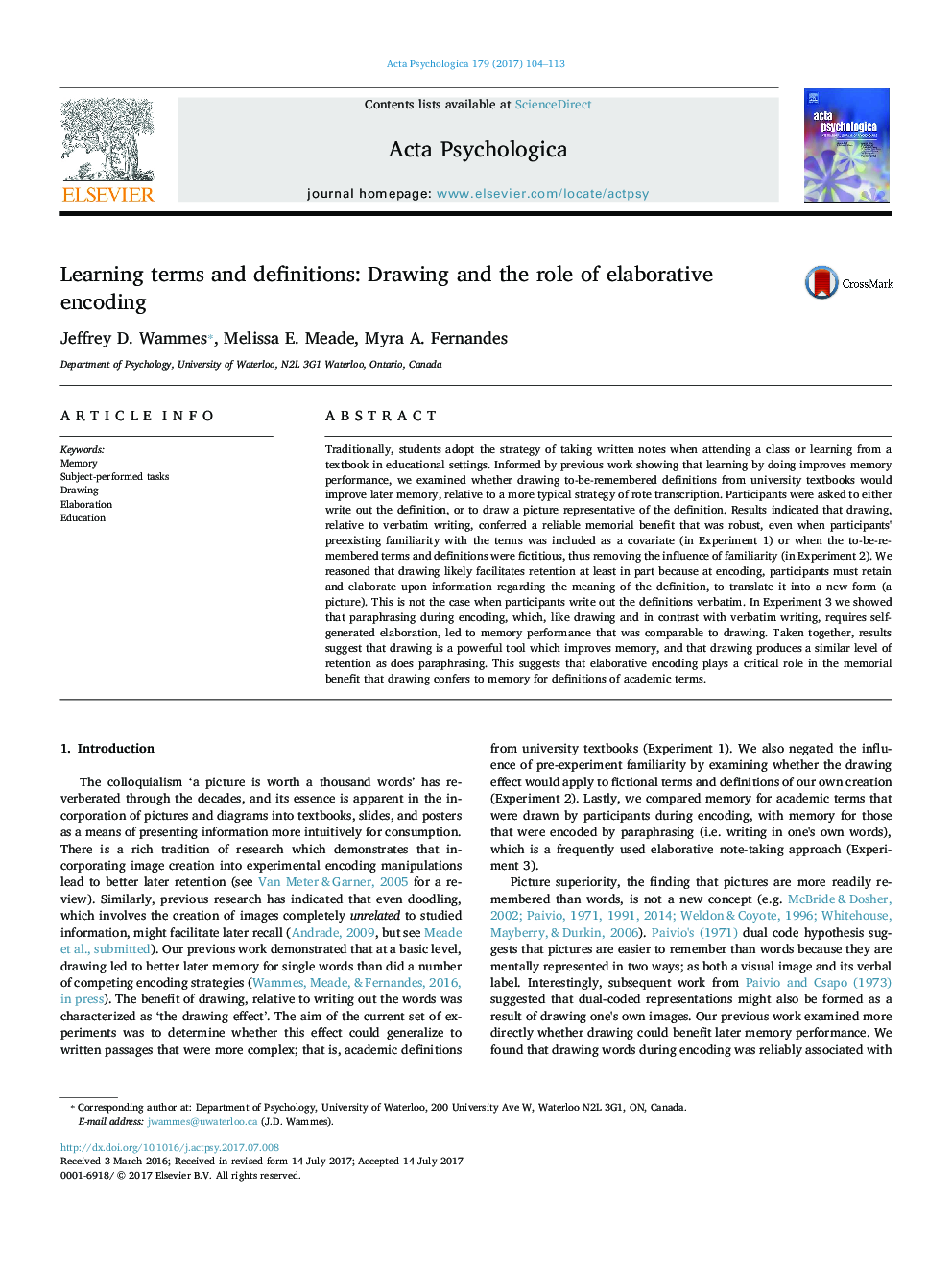| Article ID | Journal | Published Year | Pages | File Type |
|---|---|---|---|---|
| 5040228 | Acta Psychologica | 2017 | 10 Pages |
â¢Drawing at encoding improved memory for definitions more than transcription.â¢The benefit of drawing remained robust even when familiarity was controlled.â¢Drawing or paraphrasing during encoding produced comparable memory performance.â¢Results suggest that drawing confers its benefit by evoking elaborative processing.â¢Drawing is an effective mnemonic strategy for learning and retaining definitions.
Traditionally, students adopt the strategy of taking written notes when attending a class or learning from a textbook in educational settings. Informed by previous work showing that learning by doing improves memory performance, we examined whether drawing to-be-remembered definitions from university textbooks would improve later memory, relative to a more typical strategy of rote transcription. Participants were asked to either write out the definition, or to draw a picture representative of the definition. Results indicated that drawing, relative to verbatim writing, conferred a reliable memorial benefit that was robust, even when participants' preexisting familiarity with the terms was included as a covariate (in Experiment 1) or when the to-be-remembered terms and definitions were fictitious, thus removing the influence of familiarity (in Experiment 2). We reasoned that drawing likely facilitates retention at least in part because at encoding, participants must retain and elaborate upon information regarding the meaning of the definition, to translate it into a new form (a picture). This is not the case when participants write out the definitions verbatim. In Experiment 3 we showed that paraphrasing during encoding, which, like drawing and in contrast with verbatim writing, requires self-generated elaboration, led to memory performance that was comparable to drawing. Taken together, results suggest that drawing is a powerful tool which improves memory, and that drawing produces a similar level of retention as does paraphrasing. This suggests that elaborative encoding plays a critical role in the memorial benefit that drawing confers to memory for definitions of academic terms.
